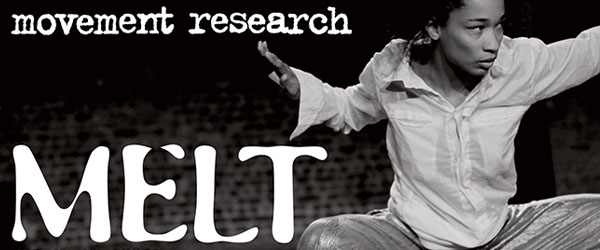Critical Correspondence
- aggression, dance, gender
- Comments Off on Dark Matter
- Writings
- 3.11.09
Dark Matter
by Clarinda Mac Low
On the eve of International Women’s Day I just happened to be reading an excerpt from Judith Butler’s book Bodies that Matter (1993) in an anthology called Beyond the Body Proper: Reading the Anthropology of Material Life. In her feminist philosophical inquiry, Dr. Butler questioned the “material irreducibility of sex” that she saw in much of feminist critical practice, and proposed that questioning our construction of how the female sex is constructed, and, indeed, how all matter is defined, was a vital part of the “democratizing potential” of feminism. She takes apart our definitions of “matter” and then reconfigures them into a new view of the concepts of materiality. About the time I reached this: “The classical association of femininity with materiality can be traced to a set of etymologies which link matter with mater and matrix (or the womb) and, hence with the problematic of reproduction.” the show I was waiting for, the last night of Performance Mix at Joyce Soho, a showcase presented by New Dance Alliance every year in downtown New York City, started.
As I watched, a phrase started forming in my mind—the angry materiality of the female body. Three of the choreographers, all young women who also performed, threw themselves and their performers into a world of movement that was dominated by force, vigor and a grim determination that eschewed charm, softness or compromise and engaged an abandoned intense athleticism that was striking and exhilarating.
Both Jessica Morgan, in Failure is Physical, and Emily Wexler, in When Will, made work that was rooted in some narrative event, but whose content was almost wholly expressed by the position of joints and limbs and the struggle of very visible flesh. Dana Michel also expressed this energy, though within a less narrative context.
The hostility and loneliness of the women in When Will was unrelenting—they fought each other, and it was real fighting, it was a dangerous tussle. The narrative implied by torn grey secretary skirts and blouses with bows and tearing paper was less interesting than the dancers’ intense commitment to the fight of the movement and the non-beauty of the moment. Even Danielle Paloumpis seemed to be tearing flesh rather than paper as she traveled up and down stage ripping a manuscript to shreds with a frightening austerity and intensity. In Failure is Physical, illness and sorrow were eked out through a combination of posture, raw physicality and effort, and a backless hospital gown. I was particularly struck by Morgan’s ability to invoke deep helplessness by just standing with her head bowed down to her chest for an inordinately long time—the posture showed all the body’s weakness without actually telling a story.
This is a kind of female dancing I haven’t seen for a long time, not since Jennifer Monson’s ferocity and Yvonne Meier’s anarchy (both of whom are still pretty ferocious and anarchic) in the late 1980s and early 1990s or, more recently, Kathy Westwater’s work (with whom incidentally, Jessica Morgan has worked. And I just realized that Westwater’s latest project is titled, like this entry, Dark Matter). I feel like there’s also a lineage to this in younger choreographers like Ann Liv Young and Regina Rocke (who both, incidentally, like Emily Wexler, went to Hollins University), but it seemed to me that in When Will and Failure is Physical there was less of a sexuality or idea of sexuality expressed than with those two artists, and more of an interest in raw female power and anger.
Or maybe it’s just power and anger, and because it’s women doing it, it becomes female power and anger. But with Dr. Butler’s deconstruction of matter and femaleness echoing in my body/mind, the texture of the force in the dancers’ bodies spoke to me of the banshee nature of women, a physical force often repressed and re-routed to emotional manipulation. As art does, and perhaps not even consciously, the dances distilled a feeling—that scream of the flesh that women contain and rarely have been expressing for a couple thousand years. Not tenderness or nurturing or softness, but an all-consuming Kali destruction, an understanding of decay and vulnerability and the intensity of material existence.
Happy International Woman’s Day.


